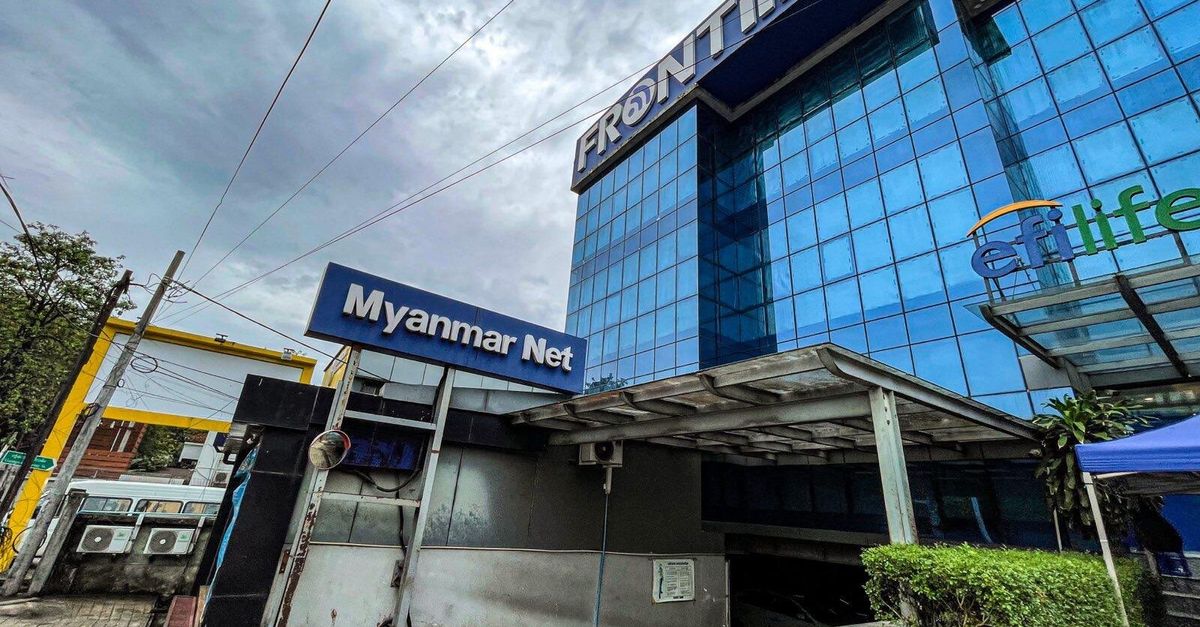An internet service provider backed by European state development funds in military-run Myanmar appears to have installed highly sophisticated Chinese technology that information gathered by reporters indicates is being used for online surveillance.
An investigation by Finance Uncovered (FU) and Myanmar Now (MN) has collected evidence from multiple sources indicating that Frontiir [a tech company in Myanmar] has installed equipment capable of tracking people online, blocking websites and preventing people from using virtual private networks (VPNs) which allow users to side-step censorship controls.
The equipment was developed by Geedge Networks, a controversial Chinese cybersecurity company founded by the so-called father of China’s Great Firewall, Fang Binxing.
[The] findings bring into focus decisions made by the governments of the UK, Norway and Denmark to inject $40 million into Frontiir through their international development funds in return for shares in the company.
[…]
[The] findings are likely to present a quandary for the governments of the UK, Norway and Denmark, all of which own shares in Frontiir. Their funding has been crucial in driving its rapid growth to become one of the largest ISPs in Myanmar, providing internet services to millions of people through its Myanmar Net brand.
A spokesperson for Frontiir denied that it had ever “built, planned, or designed anything related to surveillance” on its network in a statement sent to FU, saying any such claims were “completely false.”
It has also told its European investors that “its network has never been used by the Myanmar government to intercept or decrypt communication”.
The UK’s development fund, British International Investments (BII), has invested $26 million into Frontiir’s Singapore parent company. Norfund also invested 26.9 million Norwegian krone ($3 million) and Denmark’s IFU spent 70.1 million Danish krone ($10.5 million) on Frontiir shares.
It is believed that the funds’ equity stakes are now worth less than the sums invested. This means that were they to divest, they would make a loss.
[…]
From its Beijing research and development centre, Geedge boasts it is a “global provider of network security and intelligence equipment and solutions”.
Co-founded by Fang Binxing, the man credited with building China’s Great Firewall, one of the world’s most notorious internet censorship systems, Geedge claims it offers “encrypted traffic visibility” to broadband service providers and telecommunication companies around the world.
Last year, a JFM investigation obtained leaks which suggested that Geedge’s Tiangou secure gateway (TSG) sits at the heart of the Myanmar junta’s newly upgraded surveillance system.
[…]
Digital rights activists claim that the junta has rolled out technology allowing its cyber security team to remotely monitor web traffic not just at Frontiir’s Myanmar Net, but all telecommunications companies and ISPs in Myanmar.
“The military now has the ability to look into network activities live. They don’t even need to be there physically, they have their own monitoring office,” said Wai Phyo Myint, Asia Pacific Policy Analyst from respected digital rights campaign group, Access Now.
She called on investors to take a closer look at ISPs like Frontiir, if they have “fully complied with military directives,” including “compliance with data requests, and the interception of communication lines and blocking thousands of websites and apps”.
“We strongly urge investors and international governments to scrutinise these investments and consider imposing sanctions on companies whose operations directly or indirectly benefit the military and to stop technology transfer to those companies,” she said.
[…]
Joseph Wilde-Ramsing, an expert on the human rights obligations of international companies from SOMO in the Netherlands, […] believes the UK, Norway and Denmark are failing to enforce the OECD’s guidelines on responsible business in their dealings with Frontiir.
Under those rules, which are legally binding for all three OECD members, he said investors have a responsibility to use whatever leverage they have to prevent companies violating human rights.
“In Myanmar, we’re talking about people getting killed, arrested and kidnapped, so the burden for how quickly companies need to act, transparency and the robustness they must show, is high,” Wilde-Ramsing said.
[…]


